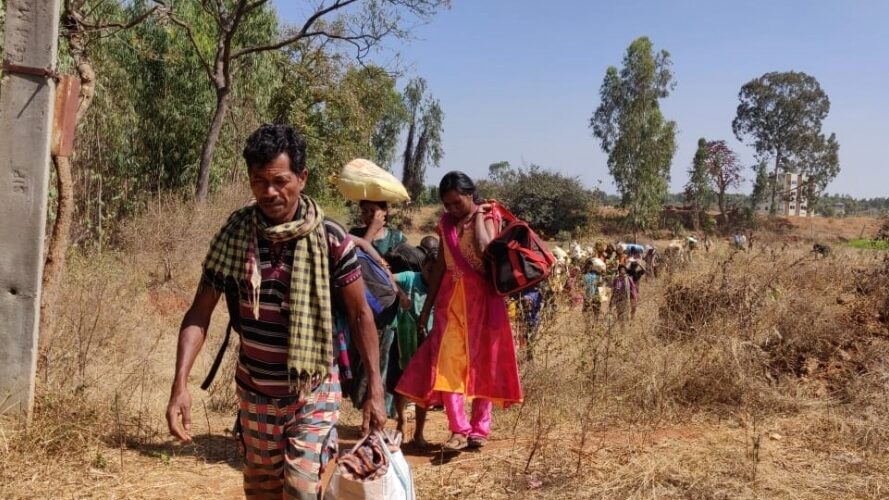Change is Happening: Officials Free 204 in a Single Day
Labor Trafficking
Last week, IJM assisted local authorities in rescuing 204 children, women and men from two massive brick kilns near Bangalore.
This is one of our largest joint operations ever and a promising sign of how the Indian government is stepping up against human trafficking in bold new ways.
Trafficked into Brutal Conditions
The women, men and 41 children in this case fell into bondage six months ago, when they were lured from the states of Chhattisgarh and Odisha (in central India) by the promise of good jobs and fair pay.
Instead, four alleged traffickers brought them by train to Bangalore and passed them off to a pair of powerful brothers who ran the two brick kilns. The owners gave the laborers an advanced payment of $200-400 for their work, which then became a false debt to convince the families they could never leave.
Life at the kilns quickly became brutal. The laborers faced constant physical and verbal abuse as they worked up to 18 hours a day molding clay bricks in the scorching sun. They were watched constantly by the kiln owners, supervisors and security cameras. Once a week, one family member could buy food at a local market under close supervision; otherwise they were trapped.
“My husband, 3-year-old son and I could only afford to eat a small meal of rice gruel twice a day,” one woman shared later. “We needed to suppress our hunger since this was hardly enough to fill our stomachs.”
At night, the families slept in tiny, temporary shelters made of stacked bricks and rough tarps. They had no access to clean water and could only bathe, cook and drink the same water being used to make the clay bricks.
Proactive Officials Take Charge
Once IJM presented the case to local authorities, they acted with remarkable speed to mobilize a rescue operation, free the laborers and arrest their alleged abusers.
In the early days of IJM’s work, it could have taken weeks of advocacy and a dozen IJM staff to make a rescue possible. Our team has spent years equipping officials on proper procedures, and now they were ready to act. IJM only sent a small group of five staff to assist them as needed.
On February 11, the government’s District Legal Services Authority coordinated a team of 30 officials for back-to-back operations at the two neighboring kilns. Inside each location, police separated the laborers from the supervisors and safely confirmed the stories of abuse before bringing the families to safety.
As he heard their stories, a prominent judge who leads the DLSA said he was stunned by “the ill-treatment that one human being suffers at the hand of another.”
As the operation continued, officials proactively followed all of the laws and best practices for bonded labor cases. Within 24 hours, police arrested four suspects, filed official reports, provided medical care and warm meals, filed a case for back-payment to the laborers, and arranged safe housing for the families for the next three days.
On the second and third day of the operation, authorities recorded detailed statements from the survivors and then provided them with Release Certificates, which break their false debts to the kiln owner and officially declare them free. Almost all of these protections were given with minimal support from the IJM team.
Safer for the Future
With evidence gathered, the government in Bangalore coordinated with their counterparts from Odisha state and arranged designated train coaches to take the survivors home. Several local officials even came to the train station personally to see the survivors off. This kind of victim-sensitive case was unheard-of just a few years ago.
“The impeccable and thorough arrangements of the government—without the kind of advocacy we have had to do in the past—was truly remarkable,” shares Indrajeet Pawar, IJM’s director of operations in Bangalore. “This is absolutely unprecedented and shows the massive shift in the government willingness to see this through.”
As they resettle, the survivors will be supported in a two-year rehabilitative aftercare program from IJM’s team in Odisha—where they will recover from trauma, find safe jobs, and relearn how to live in freedom.
IJM staff will ensure these families have safer futures and, with the promising trends in government-led rescue demonstrated in this case, we are confident thousands of other families will have that same chance too.